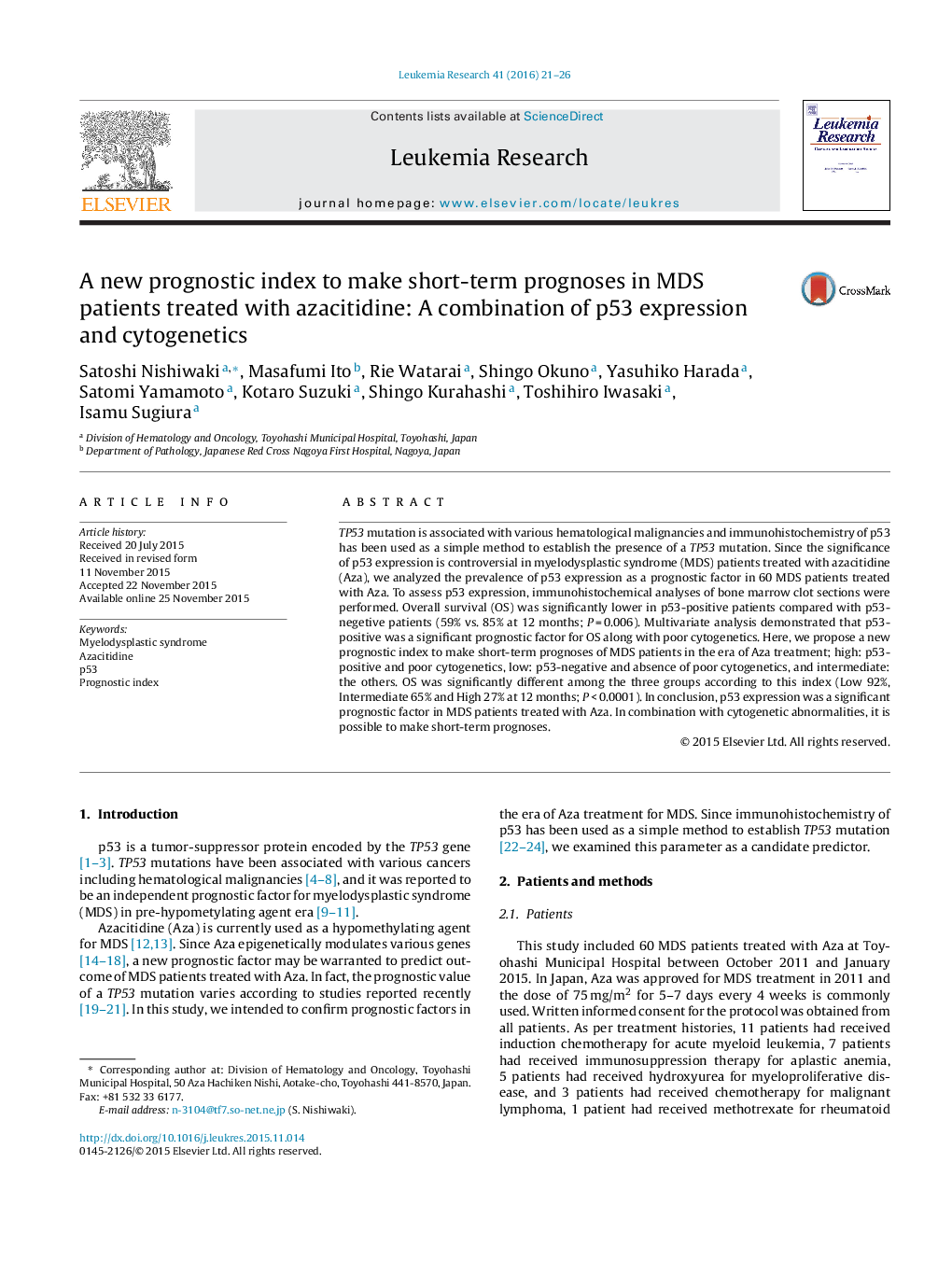| Article ID | Journal | Published Year | Pages | File Type |
|---|---|---|---|---|
| 2136477 | Leukemia Research | 2016 | 6 Pages |
•p53 expression is a prognostic factor for MDS patients treated with azacitidine.•Immunohistochemistry of p53 can be a simple method to analyze bone marrow clot.•Combination of cytogenetics and p53 expression can make short-term prognoses.
TP53 mutation is associated with various hematological malignancies and immunohistochemistry of p53 has been used as a simple method to establish the presence of a TP53 mutation. Since the significance of p53 expression is controversial in myelodysplastic syndrome (MDS) patients treated with azacitidine (Aza), we analyzed the prevalence of p53 expression as a prognostic factor in 60 MDS patients treated with Aza. To assess p53 expression, immunohistochemical analyses of bone marrow clot sections were performed. Overall survival (OS) was significantly lower in p53-positive patients compared with p53-negetive patients (59% vs. 85% at 12 months; P = 0.006). Multivariate analysis demonstrated that p53-positive was a significant prognostic factor for OS along with poor cytogenetics. Here, we propose a new prognostic index to make short-term prognoses of MDS patients in the era of Aza treatment; high: p53-positive and poor cytogenetics, low: p53-negative and absence of poor cytogenetics, and intermediate: the others. OS was significantly different among the three groups according to this index (Low 92%, Intermediate 65% and High 27% at 12 months; P < 0.0001). In conclusion, p53 expression was a significant prognostic factor in MDS patients treated with Aza. In combination with cytogenetic abnormalities, it is possible to make short-term prognoses.
